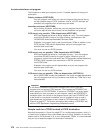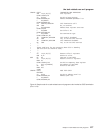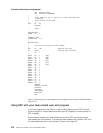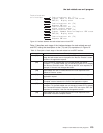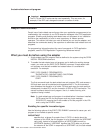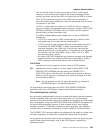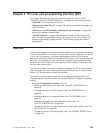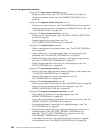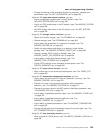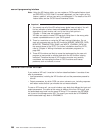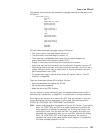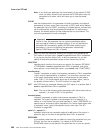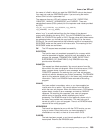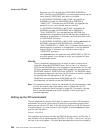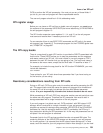v Using the XPI dump control functions, you can:
– Request a system dump—see “The SYSTEM_DUMP call” on page 314
– Request a transaction dump—see “The TRANSACTION_DUMP call” on
page 316.
v Using the XPI enqueue domain functions, you can:
– Enqueue on a named resource—see “The ENQUEUE function” on page 318
– Release a resource previously enqueued by an ENQUEUE function call—see
“The DEQUEUE function” on page 319.
v Using the XPI kernel domain functions, you can:
– Inhibit purge for the current task—see “The START_PURGE_PROTECTION
function” on page 320
– Reenable purge for the current task—see “The
STOP_PURGE_PROTECTION function” on page 320.
v Using the XPI loader functions, you can:
– Define a new program to the loader domain—see “The DEFINE_PROGRAM
call” on page 321
– Load a program or, if it is already loaded, obtain its load and entry-point
addresses—see “The ACQUIRE_PROGRAM call” on page 325
– Release the storage occupied by a program, or decrement its use count by
one—see “The RELEASE_PROGRAM call” on page 327
– Delete a program definition from the list of current programs—see “The
DELETE_PROGRAM call” on page 328.
v Using the XPI log manager functions, you can:
– Retrieve information about the activity keypoint frequency of the system—see
“The INQUIRE_PARAMETERS call” on page 329
– Set the activity keypoint frequency of the system—see “The
SET_PARAMETERS call” on page 329.
v Using the XPI monitoring functions, you can:
– Process a user event-monitoring point—see “The MONITOR call” on page 330
– Retrieve the current monitoring data for the issuing task—see “The
INQUIRE_MONITORING_DATA call” on page 333.
v Using the XPI program management functions, you can:
– Inquire about the attributes of a specified program—see “The
INQUIRE_PROGRAM call” on page 335
– Inquire about the attributes of the program that is currently running—see “The
INQUIRE_CURRENT_PROGRAM call” on page 341
– Set selected attributes in the definition of a specified program—see “The
SET_PROGRAM call” on page 343
– Browse through program definitions, optionally starting at the definition of a
specified program—see “The START_BROWSE_PROGRAM call” on
page 346, “The GET_NEXT_PROGRAM call” on page 347, and “The
END_BROWSE_PROGRAM call” on page 349
– Inquire about the settings of the autoinstall function for programs, mapsets,
and partitionsets—see “The INQUIRE_AUTOINSTALL call” on page 350
user exit programming interface
284
CICS TS for OS/390: CICS Customization Guide



